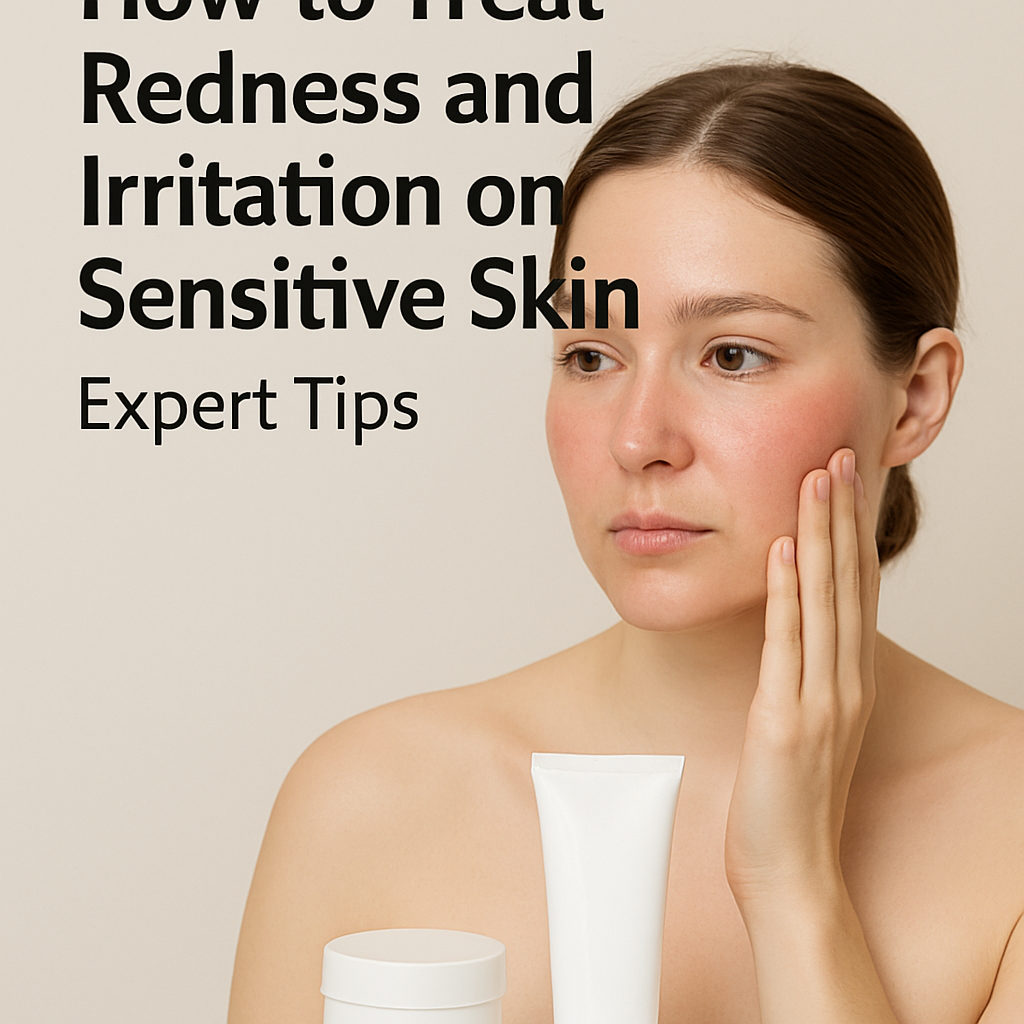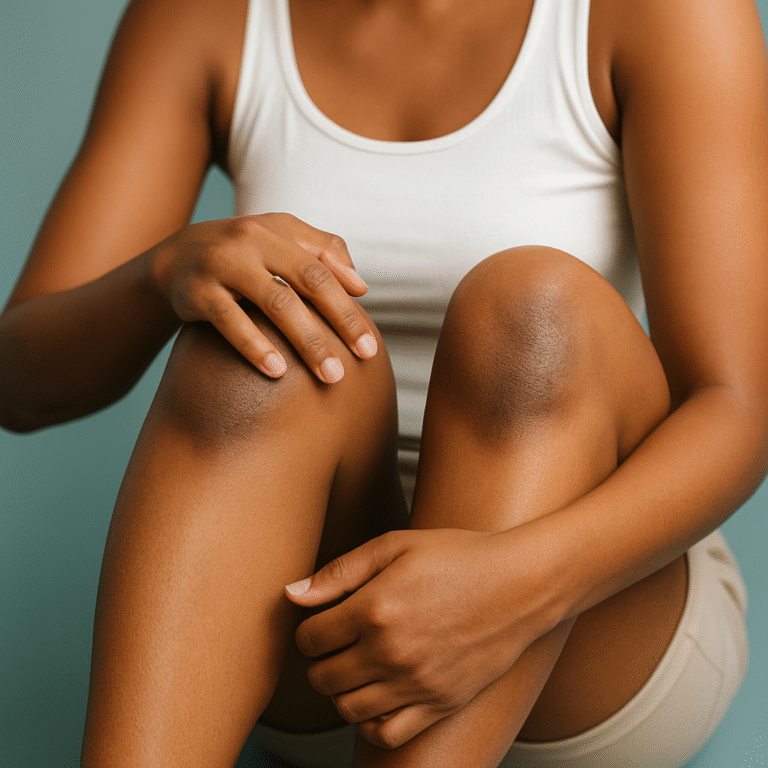Anti-Aging Skincare Tips for Sensitive Skin: What Actually Works
Fighting signs of aging can be a challenge on its own—but when you have sensitive skin, it gets even trickier. Harsh anti-aging ingredients often trigger redness, stinging, or flaking. The key is to strike a balance: effective formulas that improve fine lines and texture while being gentle enough to avoid irritation.
In this guide, we’ll explore dermatologist-approved anti-aging strategies that work specifically for sensitive skin. Whether you’re just noticing fine lines or looking to improve skin resilience long-term, these tips are for you.
Why Sensitive Skin Needs a Specialized Anti-Aging Approach
Sensitive skin has a compromised barrier that makes it prone to inflammation and discomfort. Common anti-aging ingredients like retinol, glycolic acid, and vitamin C—though effective—can be too intense when used without caution. That doesn’t mean you have to skip them altogether, but they must be carefully introduced with supportive care.
A well-designed routine for sensitive aging skin should:
- Minimize irritation
- Strengthen the skin barrier
- Provide antioxidant support
- Increase hydration
- Gently stimulate collagen production
If you’re dealing with persistent irritation, read our article on how to treat redness and irritation on sensitive skin for foundational repair strategies.
Best Anti-Aging Ingredients for Sensitive Skin
Look for formulations that combine effectiveness with soothing properties. Here are the top dermatologist-recommended ingredients:
- Bakuchiol: A natural retinol alternative that boosts collagen and reduces wrinkles without the irritation.
- Niacinamide: Supports the skin barrier, brightens tone, and improves elasticity with excellent tolerability.
- Peptides: Signal the skin to produce more collagen and improve firmness.
- Hyaluronic Acid: Hydrates and plumps the skin without clogging pores.
- Ceramides: Rebuild the skin barrier and enhance resilience.
- Green Tea Extract: A potent antioxidant that calms and protects skin from environmental stressors.
- Panthenol (Vitamin B5): Soothes and hydrates, reducing redness and sensitivity.
What to Avoid in Anti-Aging Products
Sensitive skin reacts more easily to irritants commonly found in skincare. Avoid:
- Fragrance (parfum) – A common trigger for allergic reactions and redness.
- Alcohol (denatured) – Dries out and weakens the skin barrier.
- High-concentration retinoids – Start with gentler options or encapsulated formulas.
- Essential oils (like citrus or lavender) – Though natural, they’re often irritating.
- Scrubs and harsh exfoliants – These can create microtears and increase sensitivity.
Building a Gentle Anti-Aging Skincare Routine
Start slow and focus on consistency rather than strength. Here’s a sensitive-skin-friendly routine:
Morning:
- Gentle Cleanser – Non-foaming, sulfate-free.
- Antioxidant Serum – Niacinamide or green tea-based.
- Moisturizer – With ceramides or peptides.
- Mineral Sunscreen – SPF 30+ with zinc oxide or titanium dioxide.
Evening:
- Cleanser – Same as morning.
- Anti-Aging Treatment – Bakuchiol or low-concentration retinol (2–3x/week).
- Hydrating Serum – Hyaluronic acid or panthenol.
- Barrier Cream – Rich in ceramides and lipids.
For more details, check our full skincare routine for sensitive skin to help build a stable foundation before adding actives.
Common Mistakes to Avoid
Even well-meaning steps can cause harm if done incorrectly. Here’s what to watch out for:
- Using too many products at once – Introduce one new product every 1–2 weeks.
- Skipping sunscreen – UV exposure accelerates aging and damages already sensitive skin.
- Over-exfoliating – Stick to gentle chemical exfoliants no more than once a week.
- Assuming “natural” means safe – Many natural ingredients are highly sensitizing.
Dermatologist-Recommended Products (2025 Update)
Here are some standout anti-aging products for sensitive skin:
- Avene RetrinAL 0.1 Intensive Cream – Uses retinaldehyde, a gentler retinoid.
- Paula’s Choice Calm Repairing Serum – Contains peptides and antioxidants.
- La Roche-Posay Toleriane Double Repair Moisturizer – Soothing with niacinamide and ceramides.
- The Inkey List Bakuchiol – Gentle alternative to retinol with impressive results.
- CeraVe Skin Renewing Night Cream – Peptides and hyaluronic acid in a fragrance-free base.
When to Start an Anti-Aging Routine
You don’t have to wait for wrinkles to show before using anti-aging products. Most dermatologists recommend starting in your mid-to-late 20s with barrier-supporting skincare and antioxidants. Active treatments can be added gradually based on your skin’s tolerance.
If your skin is already showing signs of sensitivity and early aging, read our expert guide on best moisturizers for sensitive skin to support hydration and recovery.
Conclusion
Sensitive skin doesn’t have to miss out on effective anti-aging care. With the right ingredients, slow introductions, and a strong focus on skin barrier support, it’s possible to see smoother, brighter, and more youthful-looking skin—without the discomfort.
Choose gentle actives like bakuchiol, niacinamide, and peptides, and avoid common irritants like fragrance or alcohol. Consistency is key, and a well-thought-out routine will bring lasting results.
Internal Links:
- Skincare routine for sensitive skin
- Best moisturizers for sensitive skin
- How to treat redness and irritation on sensitive skin
- Anti-aging skincare tips for sensitive skin (текущая статья)


